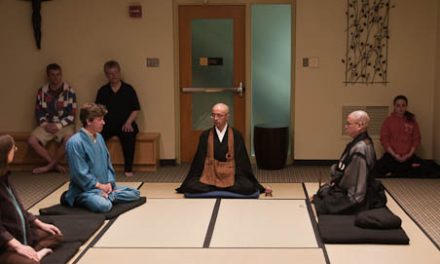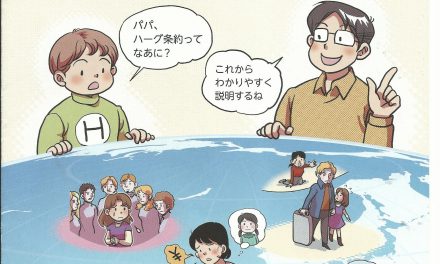Why prepare for direct visitation?
To me, direct visitation is when I get to physically see my daughter. I get to see my daughter for three days a year (yes, three) under the watchful eyes of my ex-wife’s new husband. These three days are very intense, so preparation is important. I prepare so that I have a clear head, a positive attitude and enough activities to maximise the quality of our direct visitation.
How can you prepare?
I prepare by:
- discussing plans with close family members;
- preparing a travel itinerary;
- brush up those language skills;
- investigating support services;
- discreetly asking work for leave;
- keeping our daughter in the loop; and
- preparing activities for visitation.
All of these steps are important because my visitations are so busy. Also, many of the steps are extremely sensitive. For example, one manager at work described my visitation as ‘recreation’ and assumed I had done something really bad when I told him I only got three days of visitation. As a result, I felt extremely uncomfortable sharing other personal details with that manager. If I had planned ahead I could have gone straight to HR, discussed the circumstances with them confidentially and flicked my manager an e-mail saying ‘I will be away on personal leave… somebody above you in HR agrees with my reasoning’.
Discussing plans with close family members
My wife and one my mother are both great soundboards. Also, I need them both to be onside because they play crucial roles in facilitating my access. Firstly, my wife will need to plan her own affairs (including dropping our kids off) without our usual roster. Going overseas to visit a child from my previous marriage can be stressful for her, so she needs as much notice and coverage as possible. Secondly, my mother sometimes comes as moral support (not in the order, but my ex’s husband bans her from seeing our daughter quite vehemently). She has also provided a significant amount of financial support. A return plane trip to Japan during holiday season plus accommodation can be quite expensive. Don’t harass your parents for money. However, if they have the means and are happy to help out with some of the costs, I recommend making the most of it.
Once your family is on board, everything else becomes much easier because you are not having to do it all alone.
Preparing a travel itinerary
I think it is important to enjoy your travel as much as possible, pay respect to local food/culture and to manage culture shock.
Enjoying travel
This kind of travel is neither business nor recreation. I think it fits within a special category that is far more stressful than the other two. My first time I basically arrived, jumped aboard a painful emotional roller-coaster and spent my final night on top of a building, ready to jump. Since then I have diagnosed with a number of mental health conditions. Please look after yourself! Remember that your life is your child’s only opportunity to know the truth about their upbringing. Also, I suggest seeing a suitable therapist before visiting. Abduction and alienation bring out very powerful emotions.
Warnings aside, I think it is important to enjoy your child’s country of residence. I like Japanese food a lot and have many friends over there. Visitation should include enough time to see friends, have a night out and do some local sightseeing. This is important for your health and stability. Also, it has helped me to be positive about Japan. Not all Japanese people are narcissistic child abductors! Many of my Japanese friends support my endeavors. A good night out with my favourite Japanese food (e.g. maguro sashimi, negima, katsudon…etc), a few cups of sake and some good old karaoke is good for the soul. Remind yourself that your child will learn many amazing things by growing up overseas. Hopefully one day you will be able to enjoy some sashimi and a drink with them and learn about their childhood. This is my dream!
Clear intro, visitation and end
I say this a lot because I used to be a teacher. Structure, structure and more structure!!!
As your introduction, prepare for culture shock. Acclimatise gently and do something enjoyable for your first night. My first day never involves visitation. I like to have a day where I can go for a walk in a nice park, eat some good food, observe any changes (e.g. new buildings/shops) since my last visit and relax at an onsen (possibly after a drink or two).
My next three days are busy. I break each day and then each visitation into a clear ‘intro, body and end’ structure. Every activity needs to start somewhere, go somewhere and then end smoothly. This is not always possible (e.g. due to obstructions by belligerent abductors) however, the last thing you want is to waste valuable time through poor planning. I have described the low-level details of visitation planning in another post so will not repeat them. The crux is that you want to arrive on time, be ready for everything ahead, stick to your plan and adapt your plan to suit your child’s needs every day.
During my direct visitation days I like to have dinner with Japanese friends. Dinners are a good chance to maintain positive relationships, practice Japanese conversation and to remember that the locals are your friends. I have many superb friendships with extremely kind, generous Japanese persons. These friendships reflect what Japan is really about. Every society has a few rotten apples… ask anybody, their ex-spouse is generally the worst of these. Crazy, narcissistic ex-spouses are not endemic to Japan – this is very important to remember.
The finale…
I think every direct visitation needs a finale. It is very difficult for me to accept that I will not see my daughter for 12 more months. This concept requires a lot of abstract thought processing. Fears and anxieties always come up. The second most important thing to your visitation itself is the finale because it will be your final memory. End on a high. You did it, you made a positive impact on your child’s life against all odds!
My personal preference involves a truck load of amazing Japanese food, alcoholic beverages and floating around in a quiet hotel onsen… just dreaming away, bathing in goodness and finding the inner strength to go another round.
Brush up those language skills
My Japanese is far from perfect and I have very few opportunities to practice. Currently I practice Japanese using a range of mobile apps and weekly lessons. My ex-wife’s husband is as abrasive as possible when asked to help with language, so my Japanese needs to be as sharp as possible. It will never be perfect, but in 10 years time I hope to have deep and meaningful comments with my daughter in Japanese. Language is essential! Also, it helps me to understand Japanese culture better.
Investigating support services
I have not used any social support services. However, many will facilitate direct visitation by providing services such as interpretation, social support and mediation. I might use one next time, so will report back if I do. However in theory I like the idea of a service that can allow me to remove my ex-wife’s husband from the visitation process and provide interpretation so that we can have deeper conversations.
Discreetly asking work for leave
It is important to seek leave early on so that you have the time blocked out. Every workplace is different but direct visitation times are usually inflexible. Work can always wait if you plan ahead. Also, do it discreetly! People like to spread rumours. Unfortunately, saying ‘my daughter was abducted and I am visiting her’ is not always interpreted positively. I suggest telling line managers the least amount of information possible or telling a more senior manager who you don’t work with directly.
Perceptions need to change. However without context, many people assume something fishy is going on when you tell them you have an alienated child from a previous manage. Most do not understand this is completely normal in Japan. Thus, I suggest being careful about how much detail you reveal.
Keeping our daughter in the loop
Abductors can make this part is very difficult. For example, they will probably provide misinformation about your feelings and intentions as emotional bribery. I think it is important to make sure your kid knows what is happening each month so that you have a consistent story and there are no surprises.
During each monthly video chat I start and finish by talking about the month, the seasons, our next chat and our next meeting. I like this story because it helps us to understand that we (quite literally) see the year in opposites (e.g. when she is cold, I am warm and vice versa). However, every month we will talk and every summer we will meet. As the visitation comes closer, I can discuss the specifics and ask if she wants anything from my home country. While her abductors do not allow presents from my home country, I can still bring trinkets as stimulus. I like to show her objects via video and then let her see them in person as this build familiarity. This helps to make visitations less daunting, in a world where her abductors try to make visitations as difficult and daunting as possible.
Preparing activities for visitation
As previously discussed, all of your activities should be planned. This maximises your time and provides structure.






Trackbacks/Pingbacks